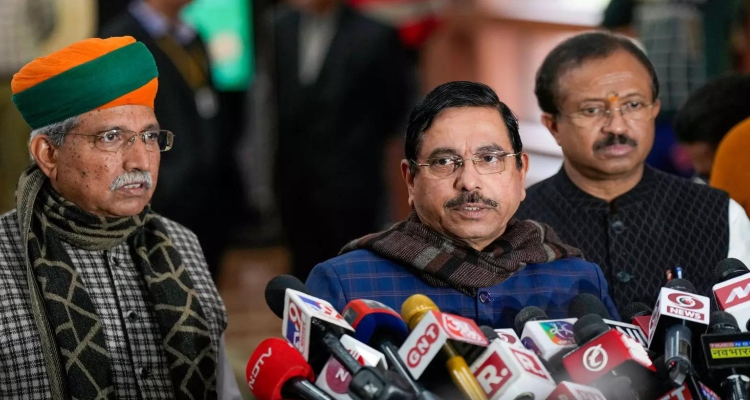
Law Minister and BJP leader Arjun Ram Meghwal accused opposition parties of attempting to create divisions along north-south lines in India, emphasizing that these efforts would be unsuccessful. Meghwal highlighted DMK MP D N V Senthil Kumar’s recent comment referring to states won by the BJP as ‘gau mutra’ (cow urine) states.
Specifically, Meghwal pointed out the BJP’s victories in Rajasthan, Madhya Pradesh, and Chhattisgarh in contrast to Congress’s win in Telangana. He mentioned the refusal of DMK floor leader T R Baalu to apologize when requested in the Lok Sabha, asserting that leaders from Congress, NCP, and other opposition parties supported Baalu in the House.
Addressing a press conference within the Parliament House complex, Meghwal questioned whether these actions indicated an intent to divide India. He also raised concerns about a senior Congress leader expressing preference for South India, insinuating a bias due to the loss of Amethi in North India.
Meghwal reaffirmed that the alliance parties’ efforts to divide India along north-south lines would be futile, emphasizing the unity of the country. He called for apologies and suggested associations between certain leaders—Rahul Gandhi, Uddhav Thackeray, M K Stalin, and the chief ministers of Kerala and Karnataka—with the alleged divisive attempts.
Kumar’s derogatory remark about the Hindi heartland states while criticizing the ruling BJP had sparked controversy on Tuesday.
‘Gau Mutra State’ this term was used pejoratively by DMK MP D N V Senthil Kumar to refer to states won by the Bharatiya Janata Party (BJP) in a derogatory manner. It was a derogatory remark aimed at ridiculing or belittling the states won by the BJP, particularly Rajasthan, Madhya Pradesh, and Chhattisgarh.
The usage of this term stirred controversy and drew criticism because it was seen as disrespectful and offensive, especially towards the regions and people associated with those states.
This incident became part of a larger discourse on political rhetoric and the sensitivities involved in using derogatory language, particularly in a political context, where such comments can further deepen divisions and create animosity among different regions or groups within the country.




